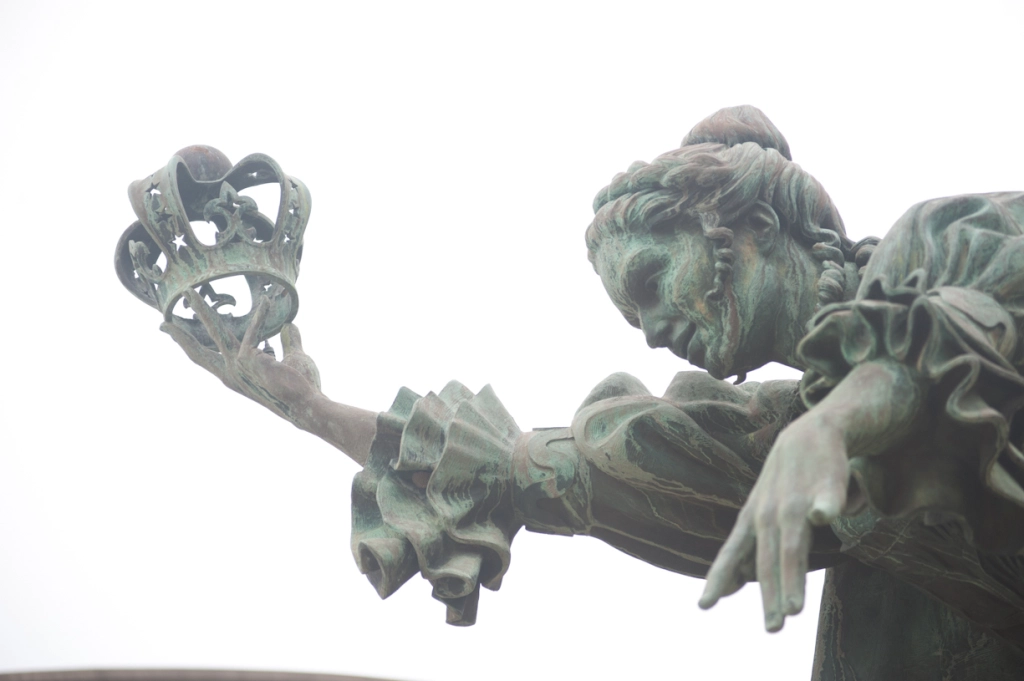This piece was published by QCityMetro.com on Nov 20, 2019 to mark National Native American Heritage Month and Charlotte’s observance of National Philanthropy Day.
Imagine a new age of ideas, leadership and people power

If we’re going to heal, let it be glorious.– Beyoncé
Just before Independence Day this summer, Edgar Villanueva, author of the bestselling book “Decolonizing Wealth,” engaged in a series of talks in Charlotte. In his book, Edgar, a foundation executive and member of the Lumbee Tribe of North Carolina, poses the question: What if we used wealth to heal, rather than harm?
“Decolonizing Wealth” analyzes dysfunctional racial and colonial dynamics at play in philanthropy. Drawing on personal experiences as a Native American and professional in the philanthropic sector, Edgar offers a prescription for restoring balance and healing divides.
To decolonize, as Edgar describes it, is to reckon with and reconcile wrongs—historical and contemporary—from which a large share of today’s wealth and privilege is derived. It is a process that entails admission and accounting of the exploitation of indigenous and enslaved people during the colonial era and the compounded trauma and impacts on Brown, Black and White people today. Central to decolonizing is a commitment to disclosure, contrition and amends as a means to heal and repair, all of us.
Listening to Edgar made me ponder, what if our community dedicated itself to healing? What if we decolonized Charlotte?
At first blush, the idea might seem improbable for a city built on a proud colonial history. Heck, Charlotte is named for King George’s wife herself. And our city’s symbol is a crown!
Cynics might exploit our standing as the nation’s third largest financial hub as a barrier to change. The mere phrase, decolonizing wealth,would seem antithetical to a bank town.
Then too there is our reputation as a vibrant “New South City,” which would seem to provide sufficient, albeit thin, cover. The implication being we have already grappled with and successfully overcome an unjust past.
Contrary to what these characterizations might suggest, I believe therein lies Charlotte’s big opportunity.Our Southern heritage, our colonial history, and our prominence in the financial sector make an altogether compelling case to decolonize—systematically purge relic ways and mindsets that betray our grasps for racial equity and economic mobility.
Decolonizing Charlotte is not that far-fetched. The city has long boasted vanguard status with the 1775 “Meck Dec.” With that civic DNA, why couldn’t Charlotteans lead again as revolutionaries? This time though, in lieu of ousting Brits, let’s end colonial reign by repudiating economic exploitation, cultural dominance, forced assimilation and other precepts of colonists.
Imagine, the symbolism and the substance of our history and status as driving forces to shake free of colonialism. We are a city that emerged from Native American trading paths and that recently celebrated its 250th anniversary. We, along with the nation, just marked 400 years of documented Black life in America.
We are a Southern metropolis that was once part of the original 13 American colonies and, too, the 14 Confederate states. While our storied past holds many points of pride, it also mires us in contradictions and complicates our lives, relationships and philanthropy.
Like an ancestral brownfield site, our civic landscape holds contaminating elements that have not been washed away and cannot be wished away. Yes, the Queen City is on the rise and a newcomer magnet, yet the “Chetty study” sniffed the toxicity.
Dysfunctional relationships and toxic power dynamics introduced generations ago still haunt our civic life. Even with all the lip service about equity, funding decisions lay bare leaders’ priorities and beliefs. Vestiges of colonial mindsets and the ideology of white supremacy linger.
It is evident in the fact that a third of Brown and Black children here live in poverty, seen in schools that are the most segregated in the state, and obvious in how we live and do things. Troubling patterns are especially stark in our nonprofit and philanthropic sphere.
When “the Charlotte way“ is perceived a term of endearment by some and an indictment by others, you could say, Charlotte’s got a lot to heal.
While many cling to fiction, the truth remains. But wonder if we dropped the façade. Masking how race, wealth and power play out in Charlotte only exacerbates issues. Suppose instead we scrutinized the problematic history of philanthropy and studied today’s data on where the money goes to inform more equitable approaches.
In lieu of assembling another task force, let’s use“money as medicine,” as Edgar puts it. Let’s direct resources to excavate the roots of injustice and examine its messy fruit. In addition to the litany of pre-K, literacy, mentoring and scholarship programs, let’s also invest in disrupting systems and institutions that perpetually feed the disparities that make such programs necessary. We need to be courageous enough and forward thinking enough to undertake that work, both internally and externally.
The great news! We need not wait for citywide buy-in or a large-scale initiative to begin. One foundation, one organization, one family or one person can choose to decolonize and start the journey. One by one, we each can become decolonizers and transform this city.
How you ask? Debunk the myth of meritocracy. Focus unblinkingly on power and race dynamics. Demonstrate an intolerance of injustice. Interrogate presumptive gatekeepers. Set new expectations for leaders. Listen and learn to sit with discomfort. Expose fake equity and keep pushing for the real thing. Read Decolonizing Wealth.
Glory exists in the work, even when it is inconvenient and uncomfortable and overdue. Decolonizing holds the power to forge our center, to heal, and to reveal at long last our civic soul. Charlotte’s elusive identity found. A so-called identity-crisis averted. You’re welcome.
###
Valaida Fullwood is author of Giving Back: A Tribute to Generations of African American Philanthropists, creator of The Soul of Philanthropy exhibit, and a founder of New Generation of African American Philanthropists, a giving circle in Charlotte, NC.
